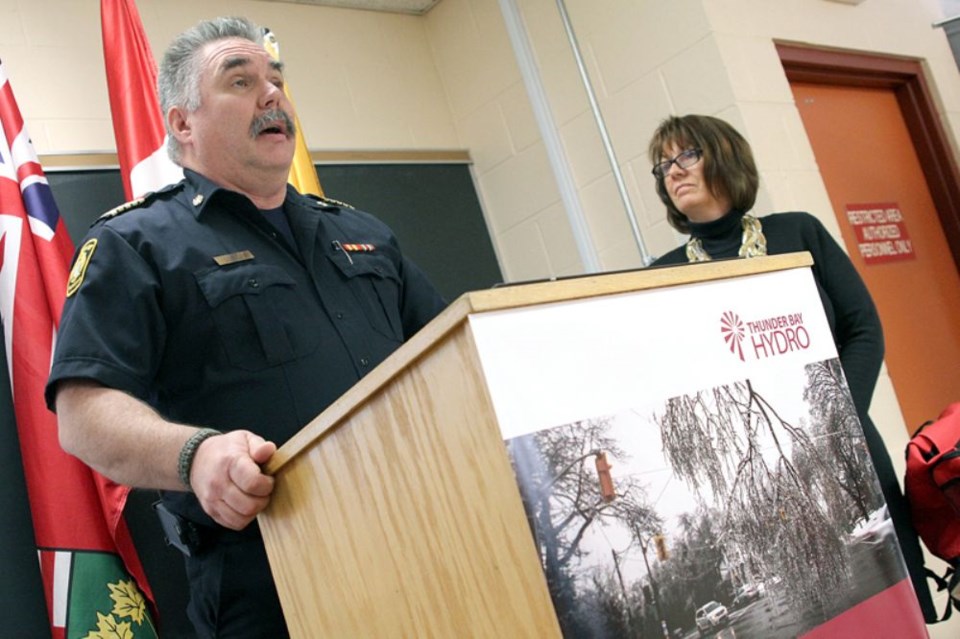In times of emergency, it’s best to act like the Boy Scouts – be prepared.
That was the message delivered Wednesday morning by a group of community partners, including Thunder Bay Fire Rescue Chief John Hay, who recommended households be able to sustain themselves for 72 hours when disaster strikes.
Hay said too often the public thinks it’s OK to call emergency services for help in non-emergency situations.
Taking those few preparedness steps ahead of time can alleviate many problems and help bridge the gap until help can arrive.
“If we tried to take care of all the inconvenienced as well as all of the threatened, we could quickly run out of resources,” Hay said.
The city, together with partners including Thunder Bay Hydro, the Red Cross and the Lakehead Social Planning Council, have joined forces to create the Storm Ready campaign, which provides tips to residents to deal with a variety of different disasters.
With more frequent severe weather incidents likely at the local level according to climate-change experts at EarthCare Thunder Bay, the timing is right, Hay said.
Thunder Bay Hydro will be including a brochure in monthly billing starting this month, detailing the basics of emergency preparedness.
First and foremost each residence should have an emergency kit, either to live off of for three days or to grab on the run in case of an evacuation.
Items on the list include a flashlight, a radio and telephone that can work without electricity, spare batteries, a first-aid kit, low-profile candles, extra car keys and cash, important papers, a manual can opener, non-perishable food and bottled water, two litres per person, per day.
Evacuation kits should include clothing, blankets or a sleeping bag, medication, toilet paper and even forms of entertainment for prolonged absences from the home.
Hay said most people have many of the items already in their homes.
Thunder Bay Hydro spokeswoman Eileen Dias said the campaign is about keeping people safe during an emergency.
“We saw the gap when the ice storm hit the Greater Toronto Area and we saw what happens when a minor outage happens here in the city of Thunder Bay. We realized that people really were not prepared to deal with power outages. And in particular a winter-storm power outage could be really devastating,” Dias said.
Being prepared isn’t just thinking about your own needs, she added.
On top of knowing your own risk-management strategy, it’s important to think of friends and family. And the risks in each home are different.
“There are some people who actually have risks with regards to running water without power. There are other people who have risks because of medication or health issues. You need to really take a look at what the risks are and you need to make a plan,” Dias said.
“That plan is going to involve all members of your family and your household and you need to be thinking of those people in your life who may need help during an emergency.”
The brochure also includes a link to the Storm Ready quiz, to help residents determine if they are prepared for the worst Mother Nature has to offer and cautions the public to be aware of upcoming forecasts, tune into local radio stations during an emergency and to call 211 for information about disrupted services or an extended emergency.
Sign in or register
- Messages
- Post a Listing
- Your Listings
- Your Profile
- Your Subscriptions
- Your Likes
- Your Business
- Support Local News
- Payment History
Registered Users
Already have an account?
New Users
Create a free account.
